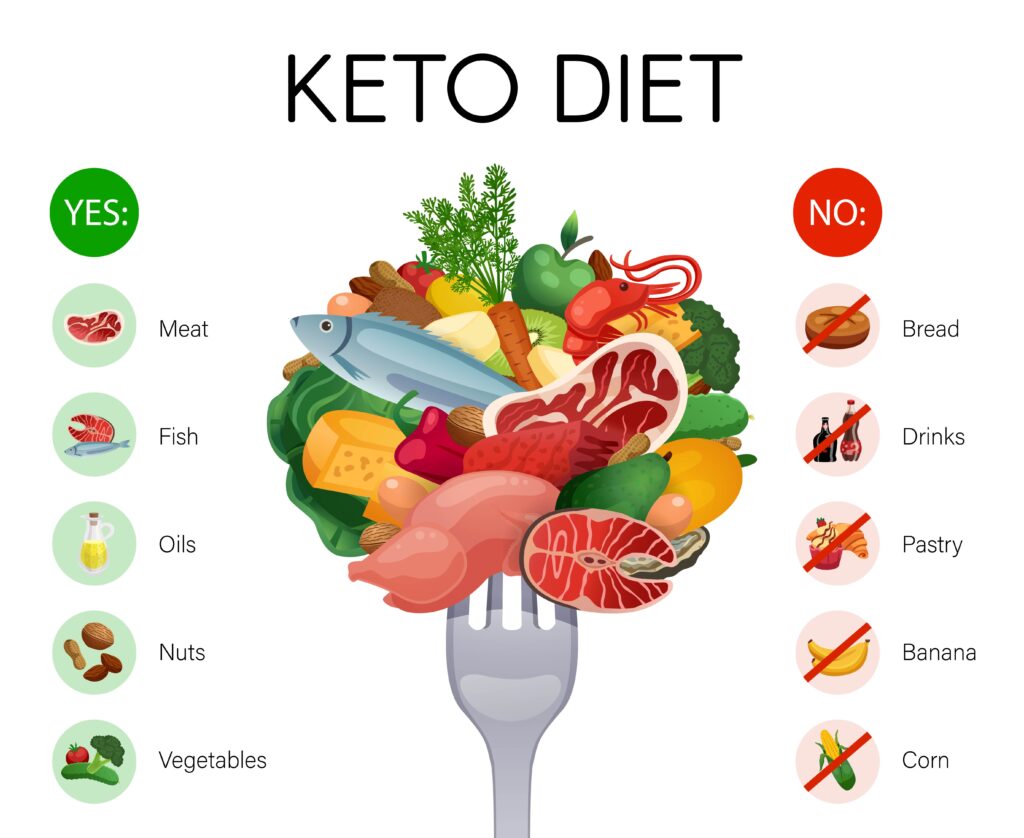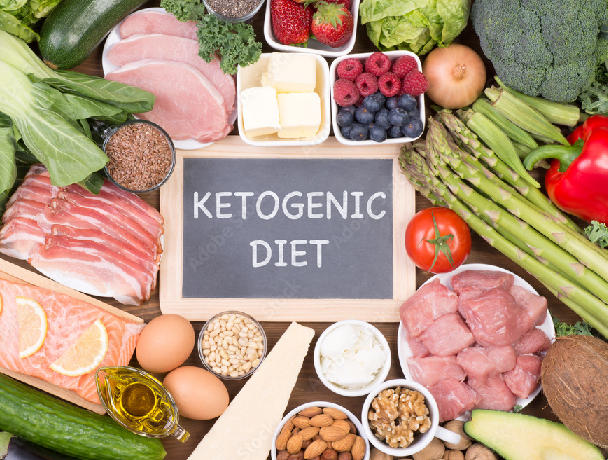Table of Contents
Introduction
The ketogenic diet, short for the ketogenic diet, is a high-fat, low-carb diet designed to promote a state of ketosis in the body. In this case, the body relies more on fat than carbohydrates for energy. In general, 70-75% of the calories in the daily diet come from fat, 20-25% from protein, and only 5-10% from carbohydrates.
By reducing carbohydrate intake, the body’s glucose level decreases, which leads to the formation of glycogen stores in the liver and muscles. Therefore, the body begins to break down fats, which are the main fuel source for the brain and body, into ketones.

The ketogenic diet is popular for its benefits, such as rapid weight loss, improved insulin resistance, and increased focus in some people. It also shows promise in the treatment of certain conditions, such as epilepsy and metabolic syndrome. However, it may not be for everyone and may be difficult to follow due to its limitations.
Because of its long-term effects and risks, always exercise caution and consult a doctor before starting a ketogenic diet, especially for pre-existing conditions. Additionally, it is important to maintain a healthy and varied diet to meet any nutritional needs.
How does Ketogenic Diet work?
The ketogenic diet works by changing the body’s primary fuel from carbohydrates to fats, resulting in a condition called ketosis. Here is a step-by-step explanation of how the ketogenic diet works:
Carbohydrate Restriction: The ketogenic diet reduces carbohydrate intake, usually by limiting it to 20-50 grams per day. Carbohydrates turn into glucose, the body’s favorite source of energy. When there is not enough glucose in food, the body starts looking for other energy sources.
Glycogen depletion: Since carbohydrate intake is low, the body depletes its glycogen stores.
A form of glucose stored in the liver and muscles is glycogen. When glycogen levels drop, the body starts looking for other fuel sources.

Ketone production: When there is not enough glucose, the liver starts to convert fat into ketone molecules. Ketones can cross blood vessels in the brain and act as energy for the brain, providing sustained fuel even when blood sugar is low.
Ketosis: When the body produces and uses ketones for energy, it enters a state called ketosis.
This is the hallmark of a ketogenic diet, in which the body mostly burns fat for fuel.
Fat Burning: After entering ketosis, the body efficiently burns stored fat for energy. This can result in weight loss because the body uses up its fat reserves, both consuming and storing body fat.
Decreased appetite: Ketosis can also cause feelings of hunger and loss of appetite, which can be beneficial for people trying to control their calorie intake.
It is important to remember that achieving and maintaining ketosis requires strict adherence to the nutritional requirements of the ketogenic diet.
Also, people will react differently to foods, and some people will find it easier than others to achieve and maintain ketosis.
Although the ketogenic diet has been shown to be effective in weight loss and in some cases, it may not be suitable for everyone. As with diet, a person’s health needs, goals, and preferences must be considered. It is recommended that you consult a doctor or a registered dietitian before embarking on a ketogenic diet or making major dietary changes.
Summary
Inducing ketosis in the body is the goal of the ketogenic diet, which consists of low-carb and high-fat foods. By limiting carbohydrate intake and increasing healthy fats, the body shifts its main energy source from glucose to ketones produced from stored fat. When glycogen stores are depleted, the liver begins to convert fat into ketones, allowing the body to burn fat for energy. Ketosis has been associated with other health benefits such as weight loss, decreased appetite, better blood sugar control, and better mental health. However, reaching and maintaining ketosis requires sticking to the macronutrient ratios of foods.The ketogenic diet may not be for everyone, and it’s important to consult a doctor or nutritionist before making any major dietary changes.


[…] ketogenic diet, or keto diet, is a low-carb, high-fat diet designed to induce ketosis, a metabolic state in which […]